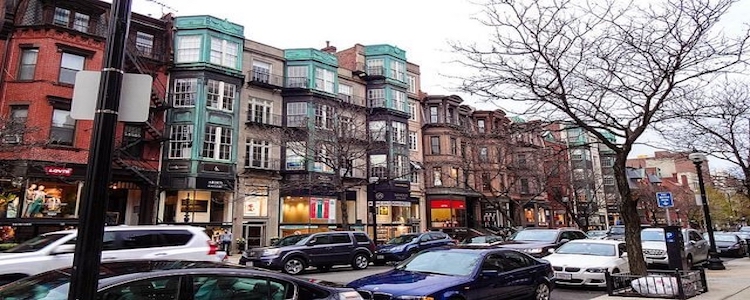Boston closes short-term rental development loophole
- Jan 14, 2020 | Jennifer Sokolowsky

Boston’s zoning commission has closed a loophole that allowed short-term rental companies to turn apartments in 11 neighborhoods into “executive suites” without a public process. The change means that companies must now apply for a permit from the zoning board of appeals in order to convert residences into short-term rentals. The measure is expected to be signed by Boston Mayor Martin Walsh.
The loophole allowed companies to operate short-term rentals in spite of Boston’s strict vacation rental law, which aims to ban investor units and prevent the displacement of long-term housing with short-term rentals. The city ordinance was passed in 2018, but parts of the law were put on hold until last year due to an Airbnb lawsuit.
The city has issued fines in the tens of thousands of dollars to companies such as Churchill Living, Global Luxury, and Sonder, whose spokesperson said they shouldn’t be punished for continuing to operate their properties while they were in the process of registering them as executive suites.
The spokesperson said the company “intends to honor the process” as it continues to seek conversion.
Boston’s short-term rental law requires short-term rental hosts to own the properties they rent out, and landlords to live in their short-term rentals for at least nine months out of the year. Short-term rental operators must also register with the city and online listings must include registration numbers. Penalties for breaking the law range from $100 to $300 per day for both hosts and platforms.
Under a legal settlement between Airbnb and Boston, Airbnb hosts can now add city registration numbers to their listings, and Airbnb said it would remove listings that don’t have registration numbers after December 1, 2019.
Airbnb also agreed to provide Boston with host information, including registration numbers, listing information, and ZIP codes, to help the city with enforcement.
According to the city, more than 6,000 short-term rental units were operating before the new law took effect. As of late December, 1,899 short-term rental operators had applied to the city for a registration number, of which 815 were approved.
Besides the city registration requirements, hosts in Boston are also now required to register with the state department of revenue, collect state occupancy taxes from guests, and file monthly occupancy tax returns, according to a new Massachusetts short-term rental law. Boston’s law also requires short-term rental hosts to collect the city’s room occupancy tax from guests and remit it to tax authorities.
Online platforms such as Airbnb and Vrbo are responsible for collecting and remitting occupancy taxes on behalf of their Massachusetts hosts. However, hosts are still required to register with the state department of revenue.
MyLodgeTax can automate and simplify lodging tax for all Massachusetts short-term rental hosts. For more on vacation rental lodging taxes in Massachusetts, see our state Vacation Rental Tax Guide. If you have tax questions related to Boston vacation rental properties, drop us a line and we’ll get back to you with answers.











